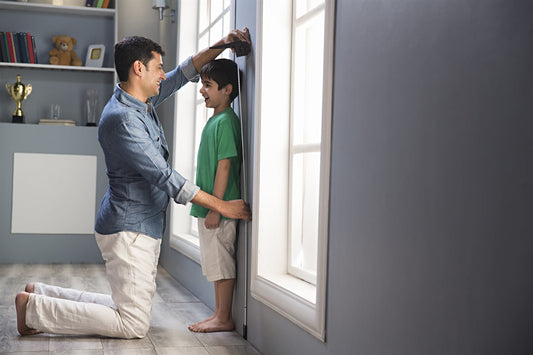Oh, the contradicting world of a child!
Have you ever felt like pulling your hair out when your child vacillates between 'yes' and 'no?' Shivani, a mother of two, says “All the time! My 3-year-old son can't make simple decisions, let alone slightly complex ones. He'll want toast for breakfast and when I get him the toast, he'll want cereal. When that is brought to him, he'll want a third item or sometimes even go back to the first one. It is really frustrating! At times, when I get really irritated, I just refuse to give him anything and he just dissolves into tears.”
This is a common struggle faced by most parents. Is the child trying to drive his mother crazy by saying yes, no, maybe or is he being indecisive? As it turns out, it is neither.

It is completely normal for toddlers as they are still developing a sense of self and individuality. By the time a child reaches the age of two – they start craving for control and sometimes this need comes out as indecisiveness. They will sense what their parents want and then decide not to do it or do the opposite. They are also too young to be sure about what they need, and this leads to the ‘Yes’-es and ‘no’-s.
Adults with no understanding of this kind of behavior often mislabel children as being fussy, indiscipline, attention-seeking, or indecisive. What most parents see in their child as stubbornness can be understood as determination if viewed from the child's perspective.
Toddlerhood is an age when the child's concept of self is emerging. The child is coming to terms with his or her own desires, wants, and thoughts. This is what we understand as "will". It is when you express this will that you learn how to make decisions. While these decisions may seem small to us, they are often big decisions for young children.
Since the ability to make a decision is not always inherent, children have to learn how to assess situations and take control. Having many options to choose from may be overwhelming for them resulting in the shutdown of the decision-making process.
How Can You Help Your Child Become Decisive And Confident?
You, as a parent, can help your child to be confident. Start with small decisions such as what to wear to play school or what toy to play with. Giving only two or three options will give them some control in making the decision without overwhelming them with too many choices. Don't give options for things that are mandatory and unavoidable. For instance, when it comes to consuming soup or green vegetables.
Parents always have the compelling urge to make the choice for their children at the first sign of indecisiveness. Resist. Don't lay out your child's playschool clothes in the morning. Let them choose from a couple of outfits. Tell them the positives and negatives of both. This will translate to an important lesson about the concept of decision-making and will also give them a sense of control.
Unless your child makes a decision that is destructive, allow them the freedom to experience the consequences of their actions. For instance, if they decide not to eat their dinner, they will have to suffer the consequence of not getting a dessert.
Boost your child's confidence by praising their decisions, no matter how small or inconsequential they might seem to you. "You made a good choice by choosing the beige trousers" or "Your choice of eating cereal instead of chocolate is a good one" are good ways of doing this. Avoid criticizing them. If you think they’ve made a wrong choice, don't scold them. Try to explain why this decision won't work and steer them towards the right one organically.
Being able to make one or two right choices will make a child more confident and help in achieving a total sense of control. This ability must be practiced in all aspects of his life. Right from choosing friends to what they eat for breakfast, these decisions will provide the groundwork for making more complex decisions in the future. Ultimately, a child must learn to trust and rely on what they believe to be the right decision







